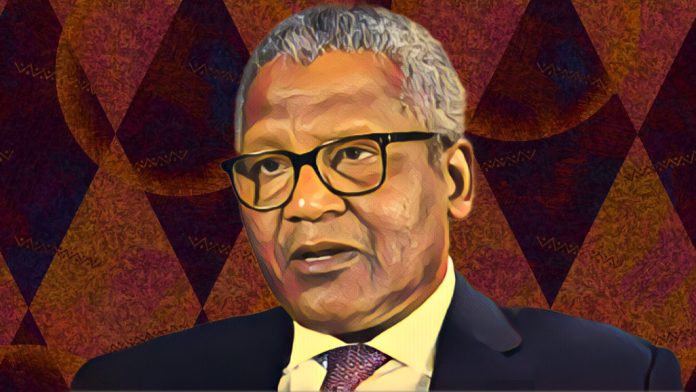Aliko Dangote has accused International Oil Companies (IOCs) of sabotaging his refinery. This accusation poses a serious indictment on President Tinubu’s administration. Dangote’s claims suggest that IOCs are plotting to ensure the failure of his oil refinery, raising concerns about the government’s handling of the petroleum sector.
At a time when Nigerians demand substantial changes in the governance of the petroleum industry, such allegations cannot be taken lightly. The refinery is not just a private endeavor but a crucial part of the nation’s economic infrastructure. If these allegations are true, it signifies a severe breach in communication and operational coordination between the petroleum industry leadership, Dangote refinery, and the Presidency.
Such information, if not managed properly, can harm public perception. It can also send negative signals to the international community and potential investors considering putting their money into Nigeria’s petroleum sector. The government must maintain a stable and trustworthy environment to attract and retain investment.
The current scenario highlights a potential lapse in handling sensitive information and strategic relationships within the sector. Effective governance demands seamless communication and coordination, especially between major stakeholders like Dangote and the Nigerian National Petroleum Corporation (NNPC). These public accusations indicate a significant breakdown in essential communications.
Some individuals working closely with President Tinubu may lack a deep understanding of his political journey and strategic vision for the country. These aides might see their roles as mere elevations, acting independently, which could jeopardize the administration’s overall goals. This misalignment can cause substantial harm if not addressed promptly.
Observing the political landscape in Abuja, it is evident how damaging ineffective aides can be to the careers of their principals. This issue is critical, and all supporters of President Tinubu’s government must be vigilant and proactive in preventing such derailments. Feedback from both politicians and ordinary citizens about the President’s handlers suggests a need for immediate intervention.
It is crucial to ascertain whether Aliko Dangote and the NNPC leadership have exhausted all avenues for a peaceful resolution with the President, who also serves as the Minister of Petroleum. Before escalating matters to the public, genuine attempts at dialogue and reconciliation should be ensured. The Petroleum Industry Act, particularly Section 109 on “willing buyer, willing seller,” should guide these discussions and resolutions.
Key individuals and agencies within the petroleum sector need daily access to the President due to the sensitive nature of their operations. It is concerning that such significant information was released to the press instead of being handled discreetly. Aliko Dangote, given his pivotal role, should have unrestricted access to the President to discuss and resolve critical issues.
If the dual responsibilities of being the President and the Minister of Petroleum are proving overwhelming, it may be wise for President Tinubu to appoint a dedicated Minister of Petroleum. This would ensure focused and efficient management of the petroleum sector, the backbone of Nigeria’s economy.
The petroleum industry is a cornerstone of Nigeria’s national interest. Ensuring its smooth operation and addressing internal conflicts promptly and effectively is crucial for the nation’s stability and growth. President Tinubu’s administration must take decisive steps to restore confidence and ensure that the industry operates transparently and efficiently. This will not only mitigate current issues but also set a solid foundation for future developments in Nigeria’s petroleum sector.
The allegations made by Dangote highlight the need for improved governance and communication within Nigeria’s petroleum industry. The government must address these concerns to maintain investor confidence and promote economic stability. Effective resolution of these issues will be essential for the continued growth and success of the sector.



